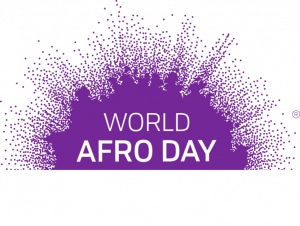“She said, your hair is different today, it’s a bit unprofessional.”
On Wednesday, natural hair enthusiasts Temi (18) and Jorja (18), joined World Afro Day founder Michelle De Leon to do an interview about Afro hair and professionalism. Last year, Temi, who was Head Girl at her school, had an unwelcome encounter with her Head of Year at a careers event. Amongst a room filled with prospective universities and employers, such as the NHS, she was told by her Head of Year, that her natural Afro hairstyle was “a bit unprofessional”.
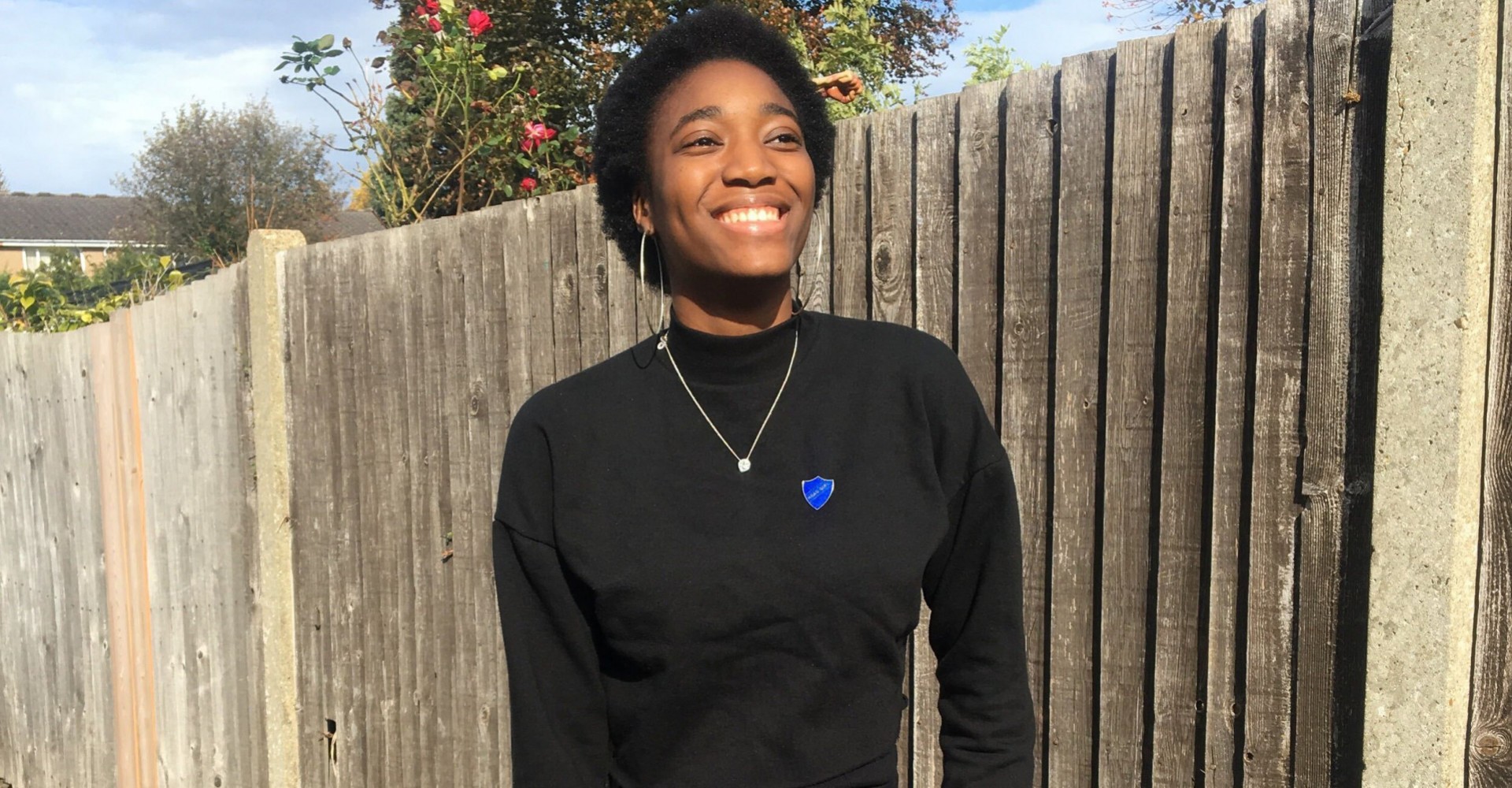
“It was the first time I wore my natural hair out, so I was really nervous about it, I wasn’t feeling as confident as I usually was.”
This was the first time, that Temi had ever worn her natural Afro hair out in school. She had only begun her natural hair journey in sixth form. Prior to this from the age of 7, Temi had taken part in a traditional method of chemical hair straightening in the black community called ‘relaxing’. This is when a chemically corrosive, creamy substance is slathered onto the natural Afro hair. This is irreversible and can only be changed if all the relaxed hair is chopped off. For years, this method has been used by members of the black community to conform to European beauty standards, stemming from the stigma that Afro hair is messy and unprofessional. Ideals of straight hair, stem from slavery, when looking more like the white master brought the slave preferential treatment. The struggle with straight hair, versus natural Afro hair is a still an issue in the black community today. This is particularly contentious around careers and professionalism, where Afro hair can be deemed inappropriate for the workplace. The encounter with Temi’s Head of Year demonstrated, just how rife the discrimination against Afro hair, still is today.
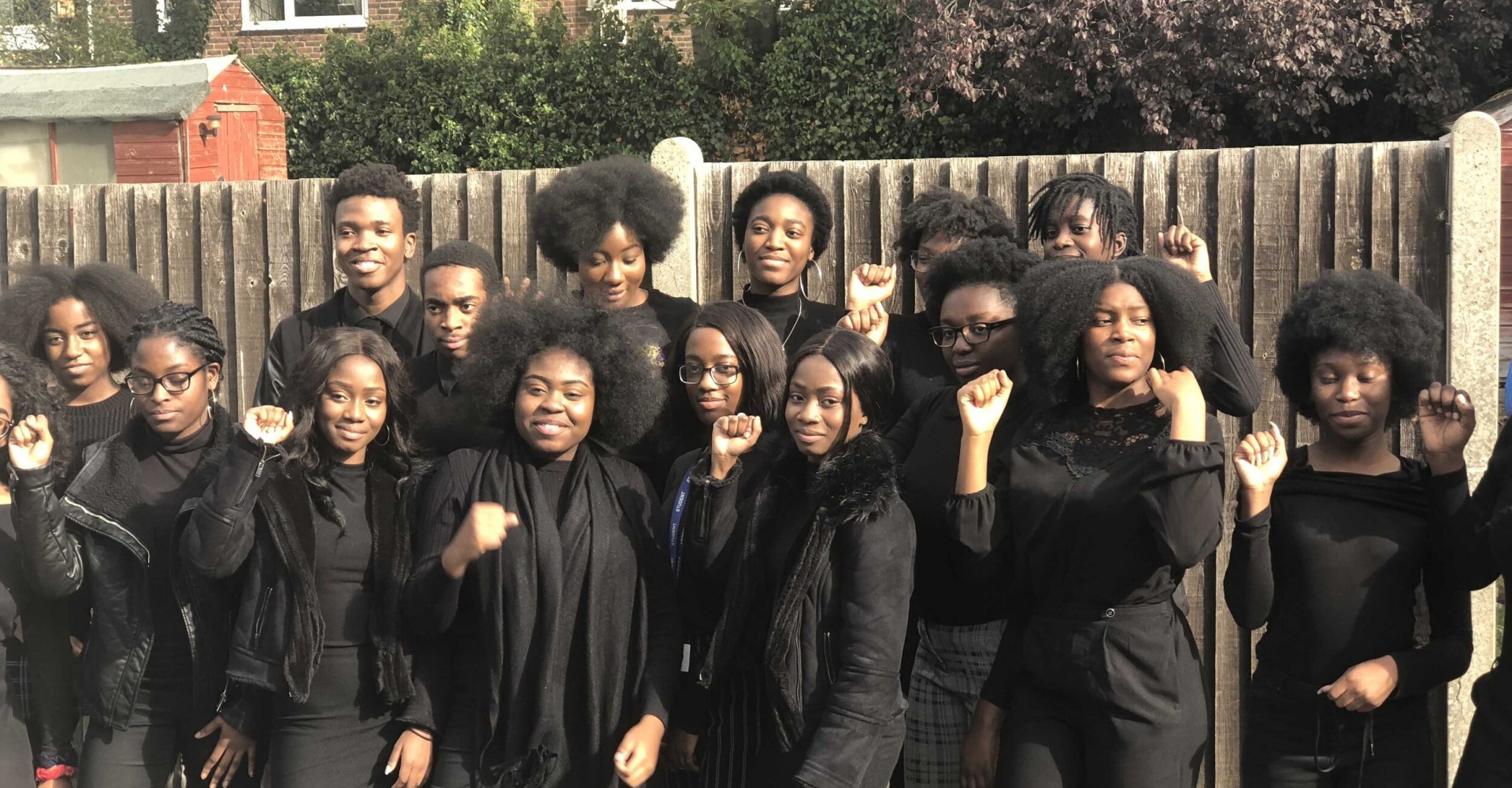
For the rest of that day, I was really second guessing myself. [She thought] oh I really shouldn’t have worn my hair like this, or maybe I just shouldn’t have cut off my hair and it really messed with my confidence that day I have to say.”
That evening, Temi voiced her discomfort about the situation to her friends on Snapchat. The next day at school she received endless questions from those around her, including other teachers at the school, who were just as shocked as she was to hear what had happened. She was encouraged by black female teachers to take the incident to a more senior member of staff, because they believed she had received unfair treatment. During the interview Temi said “I didn’t want to cause confrontation or something, because I was Head Girl, I didn’t want to do anything that would jeopardise my position. I was really hesitant to bring it up but because the teachers were so supportive of me, eventually I was okay with them helping me out”.
One teacher referred the issue to the Headteacher. Temi said “I was hearing [from others], this teacher [the Head of Year, who made comment] is having a conversation with the Headteacher. I didn’t really know everything, that they were planning or trying to do to sort out the situation”. Temi was advised by another teacher to speak to her Head of Year to see if she understood, that what she said was “offensive or wrong”. Temi took the advice and went to confront her Head of Year but she explains that before she could even start the conversation, her Head of Year said “can I just say, I really like how you can just change your hair to any style and you still look good”. In the interview Jorja said “I think she said it more as like a getaway free card, kind of thing”. At that point in the incident, Temi was “sure the Headteacher had spoken to her about it.” Jorja said “she didn’t say sorry, she just tried to switch the narrative”.
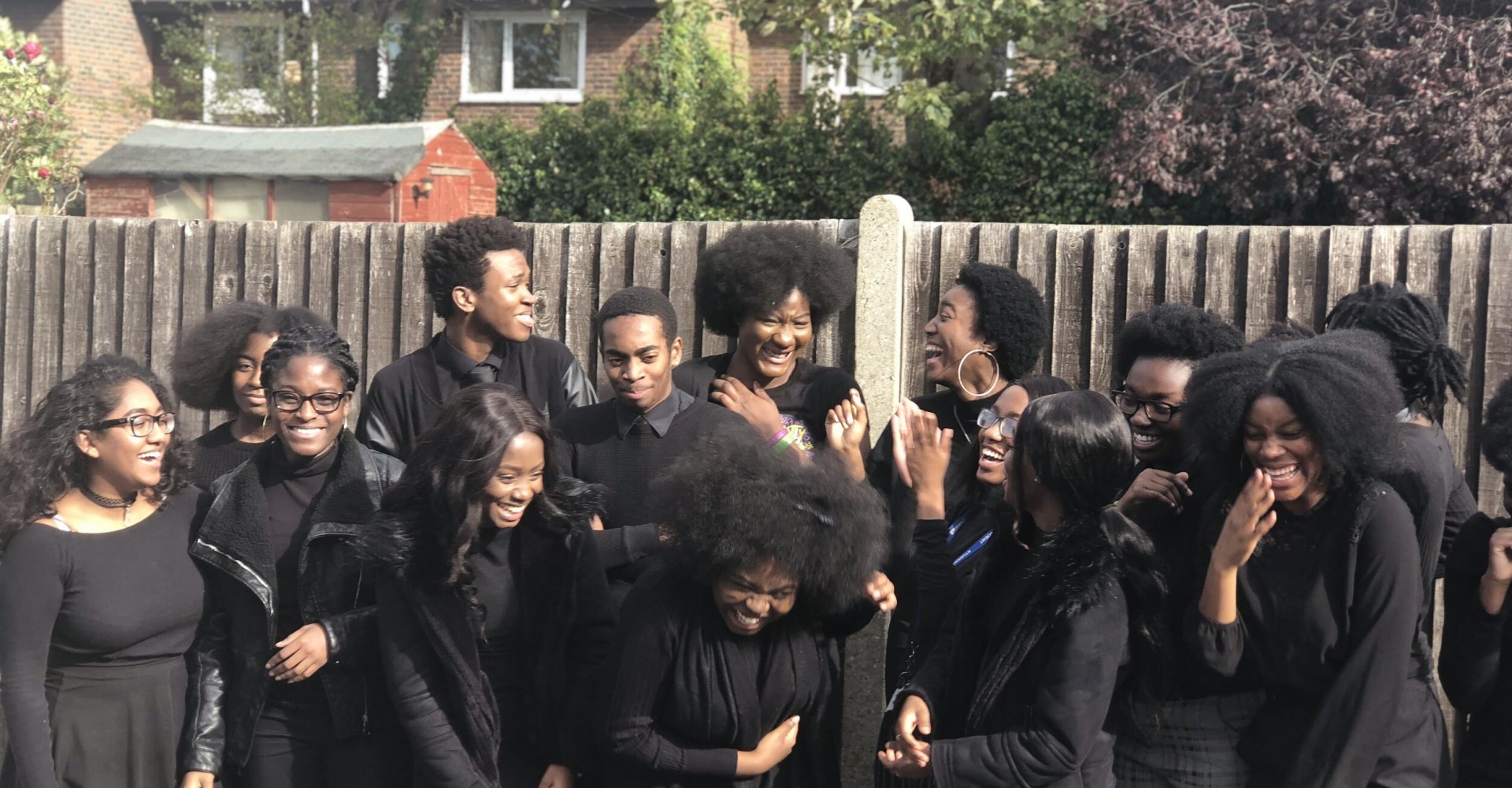
THE GENIOUS PLAN
We asked Jorja, what happened the next? She said “It wasn’t just the girls, the girls and boys collectively decided to all come into school, dressed in black with our natural hair out, the next day. Just in support because I feel like it showed solidarity and it’s a collective thing and it would stand out more”. The group of friends had initially discussed doing the event as a joke, but when Temi’s leadership skills came through, she convinced the group that a peaceful protest was the way to go. Word spread through social media, which led to students of lower year groups, also supporting Temi on the day. The group of friends (pictured) came with an array of beautiful hairstyles to show solidarity. Temi said “we had like a photoshoot you could say.”
When asked what the response was to their protest by the Head of Year, Temi replied “honestly, I don’t think she even acknowledged, that we did anything. She didn’t say anything. After that day, there was nothing to acknowledge what we did”. Jorja said “some of the other teachers spoke about it and showed support, but I feel like it was artificial support because it was more like you [the teachers] had waited until the bandwagon had started.”
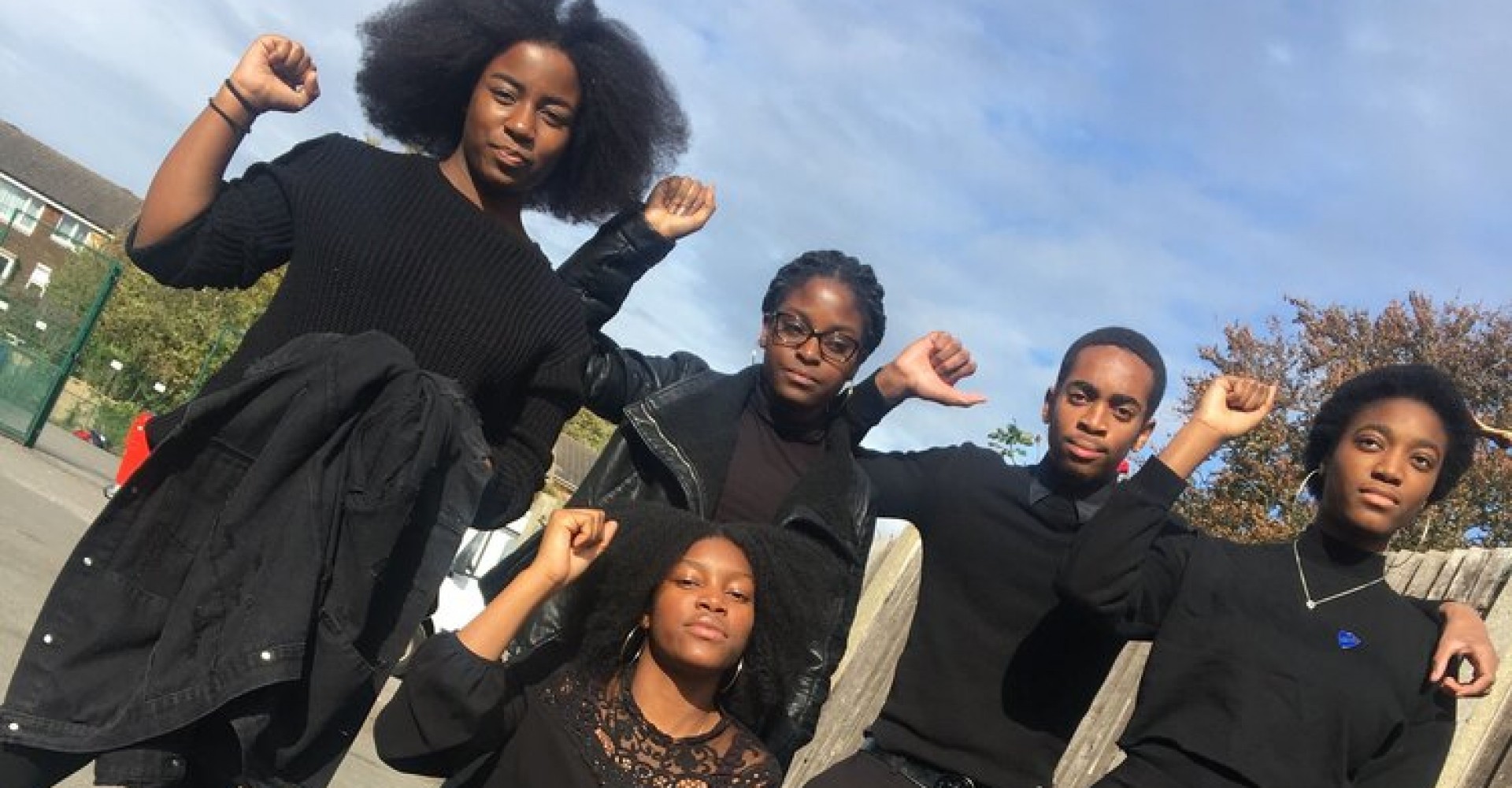
Final words
Jorja said “I just hope there will be more legislation that don’t allow people or workforces to discriminate against you because of your hairstyle”.
Temi said “Because of what I experienced, I understand a little bit, how some people may view Afro hair and I need to learn that not everybody is going to accept it but because it is my hair that grows from my scalp naturally. I’m going to make sure that I proudly wear it, when I can and how I want to. Especially because I used to relax it, I’ve just found this new confidence in being proud of my hair, I’m not about to let that confidence go just because of a job. There are other jobs out there. I can get a new job. Someone will hire me”.
Currently, both Temi and Jorja are first year students at university and still face negative experiences in relation to their hair. If there is one thing to take away from this story, is that Afro hair discrimination has gone on, for far too long. A change is desperately needed in order to ensure the wellbeing, education and futures of our young people in society. World Afro Day is committed to this objective and we will continue to work hard to educate others about Afro textured hair.
Black lives matter and so does our Afro hair.
If you have similar negative experiences because of your Afro hair, in school or the workplace; then get in touch! World Afro Day has plenty of educational resources and events targeted at changing the stigma associated with Afro Hair, email info@worldafroday.com. We are also currently running an AMAZING Top Ten Model Competition for young people with Afro textured hair ages 6-18. To find out how to enter go to www.worldafroday.com/model.
By Yasmin Olatunji
World Afro Day Social Media Manager
SCHOOL STATEMENT
As part of your celebration I would like to thank you for inviting us to comment on the experience of our former pupil, Temi Popoola.
Temi was such a great role model to other young people in our school community as Head Girl and she was also an inspiring and committed student. I have spoken with Temi this morning and have apologised to her on behalf of the school for the distress she experienced in this response to her hair as she had prepared it for this special occasion. It saddens me that this happened and that this distress could have been avoided, but there are now things we can learn from it; I have invited Temi and Jorja to come back to speak with us about how we can show better understanding of why this is important in the future.
